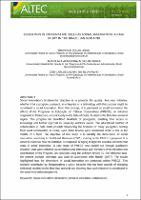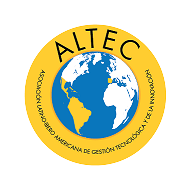Education in cooperative cells as social innovation: a case study in the brazilian semiarid

View/
Author
De Souza Lessa, Bruno
Aparecida Alves de Souza, Ana Clara
Da Silva Filho, José Carlos Lázaro
Metadata
Show full item recordAbstract
S
ocial innovat
i
on
’s
fundamental objective
is to promote life quality
.
Any new initiative,
whether it be
a program, a project, an enterprise or a technology with this purpose might be
considered a social innovation. From this concept, it is perceived as social innovation the
efforts of the
Programa de Educação em Células Cooperativas
(PRECE), an initiative
o
riginated in Pentecoste, a municipality in the state of Ceará, located in the Brazilian semiarid
region. This program has benefitted hundreds of youngsters, enabling their access to
knowledge and further approval in university entrance exams. The education
al method of
collaboration in cells made possible broadening the horizons of many youngsters coming
from rural communities in Ceará, even when lessons were ministered under a tree in the
middle of a farm. The objective of this study is to identify the dime
nsions of social
innovation, according to Tardif and Harrisson (2005), existing in the PRECE’s proposal. It is
aimed to evidence how the initiative is composed, bringing to light the essential elements that
make it social innovative. A case study of PRECE
was carried out through qualitative
research. Data were collected via semistructured interviews with members of the direction and
coordination of the Program, and analysed using the software NVivo 10. For reference base,
the content analysis technique was
used in accordance with Bardin (1977). The results
highlighted how the dimensions of social innovation are composed
within PRECE. This
research contributes by foregrounding a social initiative that has been capable of changing
individual realities in the B
razilian semiarid and showing how such initiative is constituted in
the social innovative perspective.

